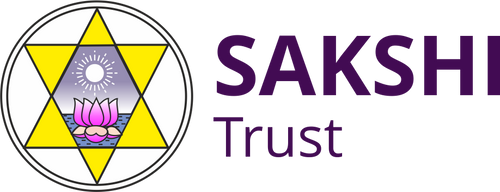Both in the purāņās and the Āgamās, Rudra is lauded as Shiva the benevolent and the destroyer. Though Gods like Agni have specific features in the front according to their several functions, yet each is only a front of the All-Gods supporting from within, one light of the original Godhead. Hence though specific features of each deity are denoted, yet mention of those of other deities alongside makes it difficult to determine the sole specialty of each. Thus in certain hymns (e.g. 4.3.1) there is hardly any distinction between Agni and Rudra; similarly between Indra and Rudra elsewhere. Still inspite of the fact that the features of Agni, Indra, the supreme Godhead, are ascribed to Rudra, it is possible to sift certain specific characteristics of Rudra. Though the qualities of Rudra are described in the Yajur and Atharva vedās, here we take into account only the hymns in the Rigveda. Let us note, in passing, that the number of hymns devoted to each God do not measure his importance. Gods like Sūrya, Vişhņu, Rudra may have fewer hymns, but that does not lessen their eminence. Why then are such a large number of hymns devoted to Indra or Agni? The hymns stress the role of the deities whose favour is indispensable in the upward path of the ancient rişhis engaged in the inner sacrifice. Neither Vişhņu nor Rudra are as relevant in these states of the ascent as Agni or Indra.
To come to the description of Brahma, Rudra and Vişhņu: Brahma creates all by Speech. The creation is a manifestation. Things lost in darkness are brought out into light. He who thus effects the manifestation is Brahma, Brahmaņaspati, the creator. He brings out all things from the darkness of Inconscience and gives them life-forms and mental forms.
Rudra forcibly leads this creation upwards. He as Shiva, puts down all those who arrogantly obstruct his course, punishes them as with a whip, kills the evil opponents with his weapons. Though thus terrible, he is beneficent, compassionate to the distressed, effects the auspicious with his healing balm.
Upholding the Universe with his three steps, Vişhņu creates for Indra wide station amongst us mortals by which we can reach the supreme station above.
Even derivatively, the word Rudra denotes the fierce or terrible one. The hymns speak of him as the source of life-strengths, father of Rudrās, parent of Maruts, as Shiva the benevolent. They speak of his greatness, plentiful progeny, parentage of Maruts and giver of the universe, who spreads felicity among all. The profound Mantra, trayambakam yajāmahe (7.59.12) [discussed at the end of this chapter] celebrates his power to liberate all persons from death. The half of the Mantra illustrating the release from bondage contains a truth of direct experience in yoga relevant even today. It reads, urvārukamiva bandhanāt mŗtyor mukşhīya māmŗtāt; even as the fruit as it ripens gets loosened from the hard shell covering it, the soul within gets separated from the external body subject to death. So, the rişhi says: release from bondage to death, but not from immortality. This is the basis of the passage in the Kaţha upanishad (6.17) which speaks of extracting the soul from the body as the fiber from a blade of grass.
